Rescue mission for UK rainforests’ weird treasures
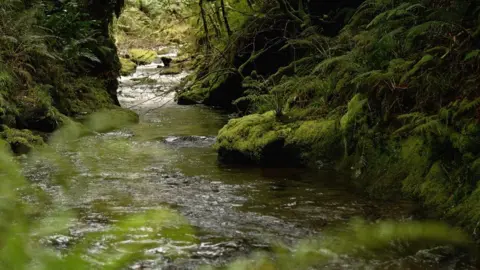 BBC/A Alcroft
BBC/A AlcroftConservationists are racing to protect rare flora and fauna clinging to survival in the UK's last temperate rainforests.
These lush, humid woodlands, mostly along the UK's western coasts, are home to weird and wonderful lichens not found anywhere else on Earth.
The historic decline of rainforests has put some globally important plants and fungi at risk of extinction.
One rare lichen is only thought to exist in a single wood in Somerset.
Threats to the habitats include deforestation, climate change, air pollution and ash dieback.
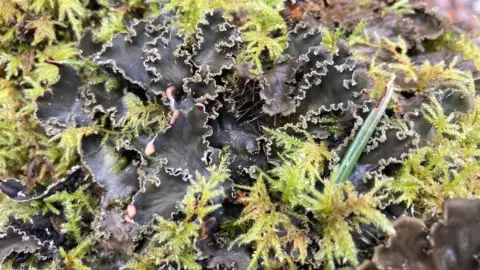 A Windle
A WindleTemperate rainforests are woodlands found in the middle latitudes of the Earth that receive heavy rainfall.
These wet, mild, humid places create a special place for rare plants and fungi.
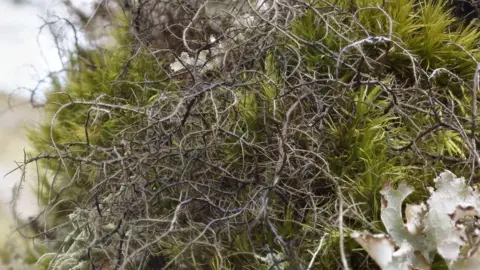 Creative Commons
Creative CommonsPockets of temperate rainforest are found to the west of Scotland and north Wales, as well as in the Lake District and south-west England.
The ancient woodlands have shrunk to a fraction of their former size after years of deforestation and over-grazing.
 Guy Shrubsole
Guy ShrubsoleConservation charities, The National Trust and Plantlife, are working to protect these hotspots of biodiversity.
According to Dartmoor ranger, Demelza Hyde, this "miniature world of mosses and lichens" is the "lifeblood of temperate rainforests".
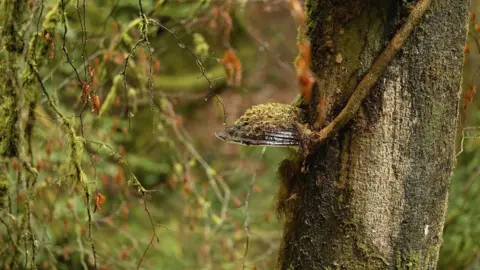 BBC/A Alcroft
BBC/A AlcroftMany rare species at Lydford Gorge have been identified only in the past few years, she said. Work is underway to save lichen growing on dying trees by transplanting them to other parts of the forest and by planting new trees.
"Because of ash dieback and the changes in climate - the crisis that we're facing - we have a very finite amount of time to do something about it," she told BBC News. Ash dieback is a fungus that spread from Asia and has devastated European ash trees in recent decades.
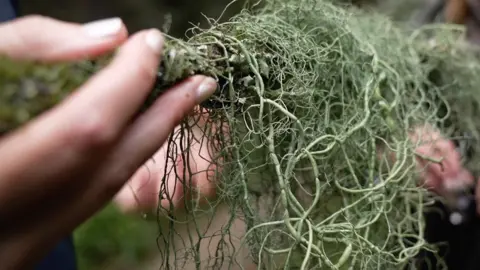 BBC/A Alcroft
BBC/A AlcroftLichens are a particularly unusual class of organisms found in temperate rainforests.
The plant-like living things are made up of fungi growing in association with other life forms, such as algae. There are more than 2,000 species in Britain and Ireland alone, many of which are found in temperate rainforests.
The horsehair lichen Bryoria smithii is known at only two rainforest sites in Britain and Arthonia thoriana, a rare comma lichen, is not known anywhere else in the world other than at Horner Wood in Somerset.
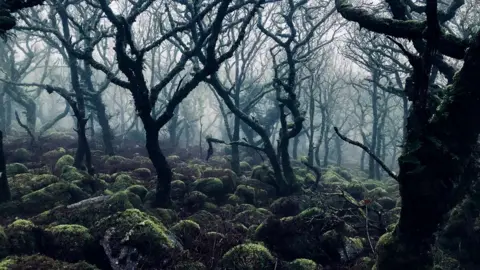 Guy Shrubsole
Guy ShrubsoleApril Windle, a naturalist from Devon who specialises in lichens, says these tiny, obscure species deserve as much attention as bigger, flashier ones.
"In conservation, it tends to be the big, fluffy, very charismatic species that get a lot of the attention," she explained.
"But for me, within a habitat like this, it's the small things that make these habitats so incalculably important: the lichens that you find in these woodlands are as rare, if not rarer, than the habitat in which they're found."
 BBC/A Alcroft
BBC/A AlcroftUntil recently, few people were aware of temperate rainforests in the UK and the need to protect them.
The project in Devon focusses on restoring the existing woodlands to safeguard important plant and animal species, by:
- Clearing invasive plants
- Planting a future generation of veteran trees to replace those killed by ash dieback
- Transplanting lichens growing on dying trees to other parts of the forest.
Follow Helen @hbriggs.
